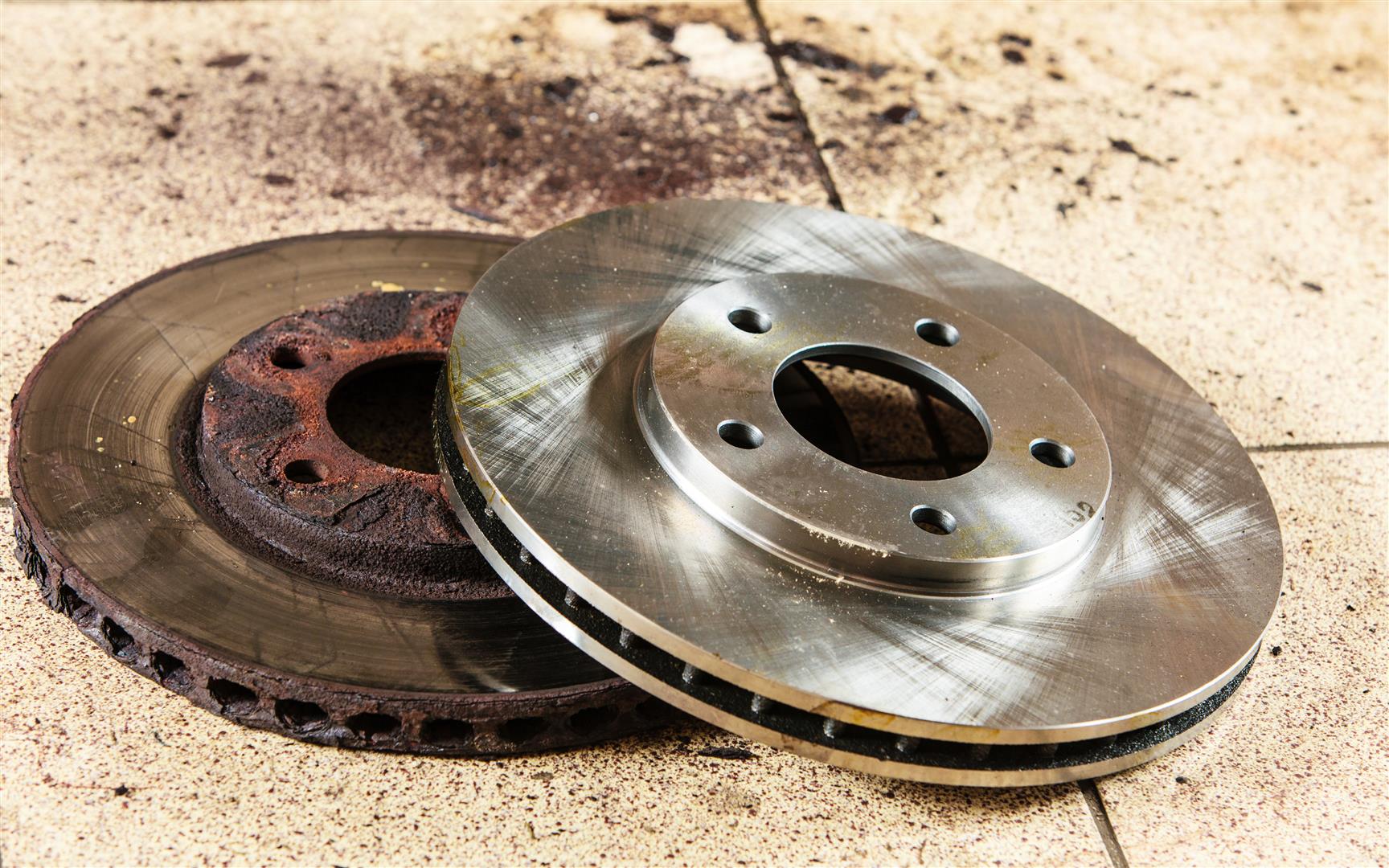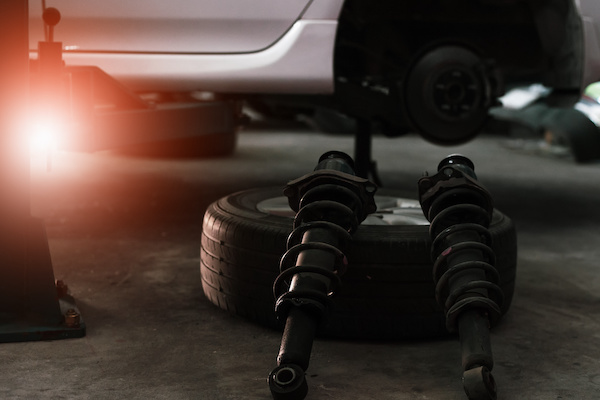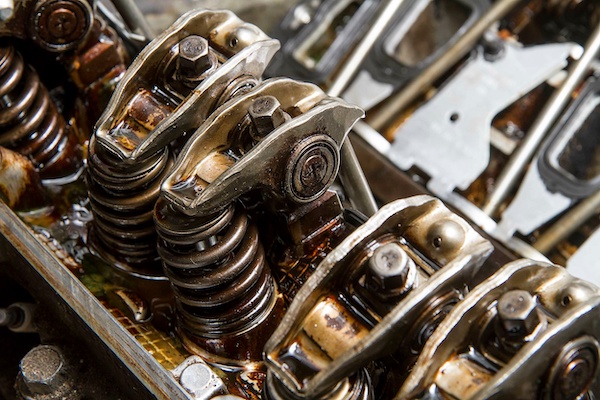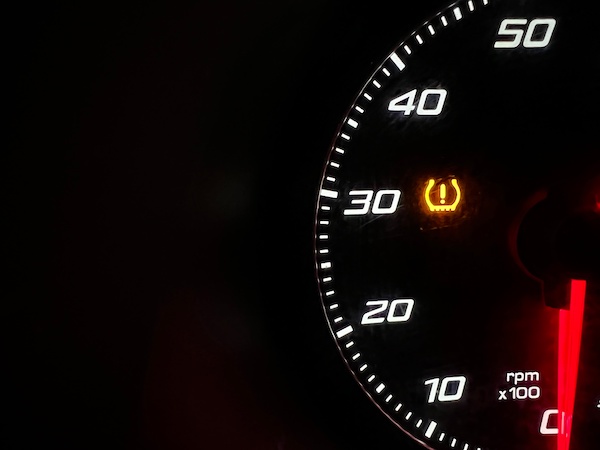Posted on 1/30/2023

When you press your vehicle's brake pedal, several components start working together to bring your car to a stop. One of them is the brake rotor. Every wheel has one rotor mounted to it, and they spin together. When braking, your rotors are slowed down by making contact with the brake pads. Just like all other parts in your vehicle, rotors are prone to damage. While a fully broken one is very uncommon, it can be bent. There are a couple of causes that can result in warped rotors, and here you will find some of them. Overheating And Hard Braking When the calipers are activated, the brake pads clamp down on the rotors, slowing down the wheels. This results in a lot of friction and heat. If they overheat, the metal starts to warp and bend. Even the slightest change in shape is permanent and unfixable. Other causes of excessive heat are hard braking and stop-and-go traffic. Not Implementing Cleaning Habits While it is not on the top of our maintenance list, proper brake syste ... read more
Posted on 12/30/2022

The suspension system is a critical part of your vehicle's functionality. It keeps all the wheels on the ground, making your ride smooth and braking easy. However, because of its various mechanical responsibility, it's prone to different problems and shocks. How Do You know It's Time for Suspension Repairs? Wear and tear associated with your vehicle's system and regular use may impact your suspension system. Unless you are a car expert, you may not know when the suspension needs repair. But there are pointers that it's time for repairs. Be on the lookout for the following tell-tale signs. Your Car Drifts to One Side When Driving A faulty suspension causes your car to drift to one side while driving, even on flat surfaces. This is usually a common sign of a failing suspension. Uneven tire pressure may also cause drifting, but if it's intense, check your suspension system. Your Ride is No longer Smooth When you begin feeling ... read more
Posted on 11/23/2022
.jpeg)
Driving on the open road comes with its challenges. Whether you are driving a short distance across town or a long distance across the country, you should be fully stocked with an emergency kit. When you bring along items, you’re more equipped to handle unexpected breakdowns better. Every automobile should have the following things in its emergency kit: Tire pressure gauge Spare tire, wheel wrench and tripod jack - for flats on the road Jumper cables - in case your battery dies unexpectedly Tool kit and/or a multipurpose utility tool Flashlight with batteries Reflective triangles - to make your vehicle more visible if it breaks down at night Compass Paper map First aid kit - with bandages, ointment, gloves, tweezers, aspirin, gauze, hydrocortisone, thermometer, tweezers, and any other items that may help with unexpected pain or sickness on the road Extra car fluid - including gasoline, windshield washer fluid, coolant, etc. Fire extinguisher Nonperishable foods and s ... read more
Posted on 10/31/2022

Oil is a crucial petroleum product that is used throughout a variety of industries, including the auto sector. Oil is a gasoline byproduct that coats the engine of a car. When cars use motor oil, it sometimes may burn, and produces smoke and carbon dioxide, and the greasy substance called oil sludge. On automotive parts, oil sludge builds up as they age and deteriorate. Oil sludge can be collected and recycled to lower greenhouse gas emissions. After some time on the road, oil sludge, this sticky, black stuff clogs car engines. If your vehicle has an oil filter, eventually the oil will flow through the filter and collect on the engine components. This gunk collects on car parts over time and renders them useless. While some people know how to clean their cars' engines, the majority do not. So they let their engines to be destroyed by the accumulated oil sludge. Car owners typically become aware of a decline in their vehicle's functionality over time. The engine is now so ful ... read more
Posted on 9/26/2022

The low tire pressure warning light is a safety feature on your car. It can tell you that one or more of your tires underinflate. If ignored, these problems may even cause an accident. A warning light will flash on your dashboard if a tire deflates or a loss in pressure occurs above 25%. If no warning lights appear, but you still feel something isn't right about how your car handles or drives -- check your tires. Here are what can happen if you ignore your low tire pressure warning light: Your Tires Could Wear Unevenly If you ignore your tire pressure warning light, the tire will likely become underinflated. Underinflated tires can wear unevenly, leading to blowouts and other dangerous situations. It's also possible that your tire could blow out while you're driving at high speeds. You Could End Up With a Flat You may think that you've got the tire pressure thing under control, but it's essential to check your tire pressure regularly. If you don't, there ... read more